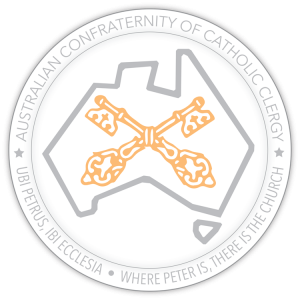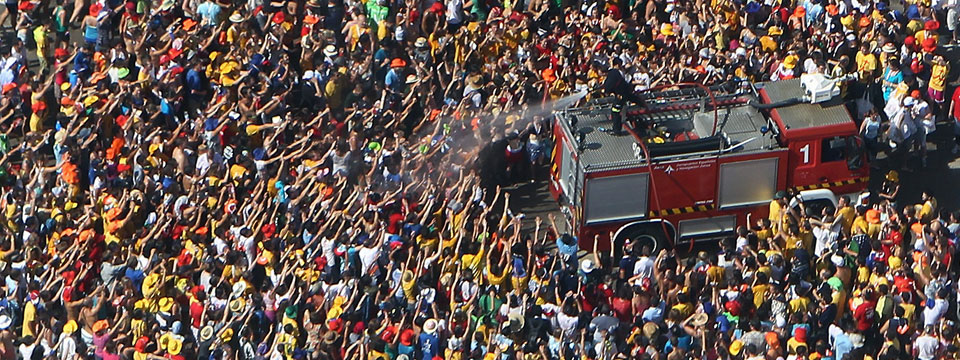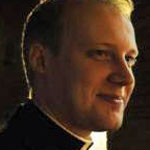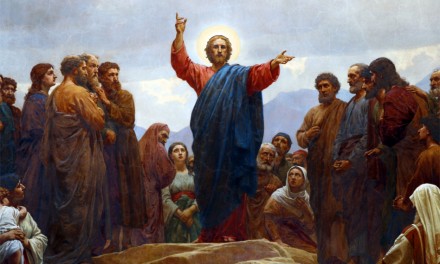WYD through the eyes of a new priest
Is World Youth Day really worth the effort? Is WYD anything more than a glorified Catholic road show? Is it just a passing fad – a short- term pastoral bandaid – or does it really have an enduring role in the New Evangelisation of the Church?
Three years after hosting our very own WYD here in Sydney, and after witnessing the largest ever contingent of young Australians journey overseas to WYD in Madrid, it is worth reflecting on what exactly is the value of World Youth Day?
As a newly-ordained priest I had the privilege of acting as a chaplain to a pilgrimage group of forty year ten and eleven students from Catholic schools across the Archdiocese of Sydney. Whilst a distinct group we travelled in conjunction with another hundred or so post-school pilgrims, led by Bishop Porteous, which travelled to Madrid via the Holy Land. Given that a significant proportion of the school students came from families that had lapsed in the practice of the faith (two students belonged to other Christian denominations and three had not even been baptised), the eight days we spent visiting some of the most sacred of sites proved to be of incalculable value and contributed immensely to the overall success of our pilgrimage.
What better way to challenge young people to move beyond a purely wistful comprehension of Sacred Scripture and Catholic teaching than to actually preach the Gospel and celebrate Holy Mass at the very sites of Christ’s Incarnation, Transfiguration, Crucifixion, and Resurrection? “For the first time the Gospels came to life!” heralded one year ten girl.
Although there were many special moments of grace throughout our time in the Holy Land (not least of which was a Mass celebrated by Cardinal Pell on a boat floating on Lake Galilee), one memory stands out in particular; a memory that underscores the inestimable value of the ‘pilgrim experience.’ Late on a Thursday afternoon, our pilgrim group gathered at the Church of All Nations (aptly known as ‘The Basilica of Agony’) in the Garden of the Gethsemane. Here in this darkened church we prayed silently in front of Jesus exposed in the Blessed Sacrament, remembering Christ’s words to his disciples: “So could you not watch with me one hour?” (Matt 26:40).
At the same time, several priests –including myself- made themselves available to hear confessions. Again, for the majority of the school students, this represented the first time they had ever experienced Adoration of the Blessed Sacrament and for many was the first time in a number of years that they had developed the confidence to approach the Sacrament of Reconciliation.
I walked away that night saying to myself, “you really do have the greatest job in the world.” After our return to the hotel from the Holy Hour I continued to hear confessions in the lobby till after two am! No words could describe what a grace it was to witness the tears of absolute joy shed by these young people who, for the first time in years, experienced the peace of Christ’s love and mercy through the words of absolution.
This night represented a major turning point for these young people in their journey of faith. For it was precisely by cultivating a love and knowledge of Christ’s presence in the Blessed Sacrament and by encouraging them to discover the wonder of sacramental confession that these fun-seeking teenagers were gradually being transformed into faith-filled pilgrims. We were now ready for WYD and everyone was excited!
Amidst the hustle and bustle of heat-wave Madrid, the plethora of events that form WYD week provided our group with a range of opportunities to solidify and build upon the immense blessings bestowed upon us in the Holy Land. However, the strength of WYD is not found in the events themselves. In fact, I would think of it as something of a false economy to dream that ‘event evangelism’ would ever be a suitable antidote to the problems of youth ministry.
Rather, the success of WYD hinges on encouraging young people to appropriate the catechesis imparted through the various mediums offered at WYD and apply it to their everyday lives. Personal apostolate, particularly as a chaplain, forms a crucial part to facilitating this process.
Of course the most important catechetical medium at WYD is the personal preaching of the Pope and the opportunity to draw closer to the one who is the Vicar of Christ, His Holiness Benedict XVI. Unfortunately for us monolingual pilgrims, most of our group were not able to have direct access to much of what the Pope preached about in his beautiful homilies and reflections. Nevertheless, the Pope’s call to “swim against the tide” and be “apostles of the 21st century” became evident in other ways.
On a few brief occasions our group was confronted by some of the more hostile factions of secular Spanish society. Somewhat ironically, however, our fleeting encounters with these protesters made a very deep impression on the school students, forcing them to reflect and question, “Why is there such aggression towards the teachings of the Church?” Over the course of the week, our young pilgrims came to a greater realisation of what a counter-cultural thing it is to want to be holy.
Holiness is a sign of contradiction to the ‘world’ (i.e. secular society), a sign of a deeper, more enduring and transcendent reality which calls into question the shallowness and transience of secular society’s values and false idols. It is little wonder then that the presence of so many young, joyful and committed Catholics makes the secular world feel uncomfortable – it challenges every single one of the wrong attitudes that many people just absorb from our society. By the time of our departure, two students came and told me that, by virtue of their WYD experience, they would like to become Catholics.
On returning from WYD Madrid, I am convinced that World Youth Day is worth every effort and deserves priestly support because it has the proven capacity to change and transform the lives of young people. By affording young people a genuine exposure to the beauty of Catholic culture; by providing young people with an opportunity to witness the palpable joy that comes in searching and discovering truth; by giving young people the opportunity to have close contact with happy priests and religious, the young people of Australia were able to truly discover the pride we should have in being “rooted and built up in Christ, firm in the faith.”
For many WYD sceptics, this opinion may sound elusively pious. Where is the proof that lives were changed? Well the proof to me as a priest is obvious, for a priest is afforded a privileged insight into the real significance of WYD in the life of the Church – but it’s hidden in the confessional.






